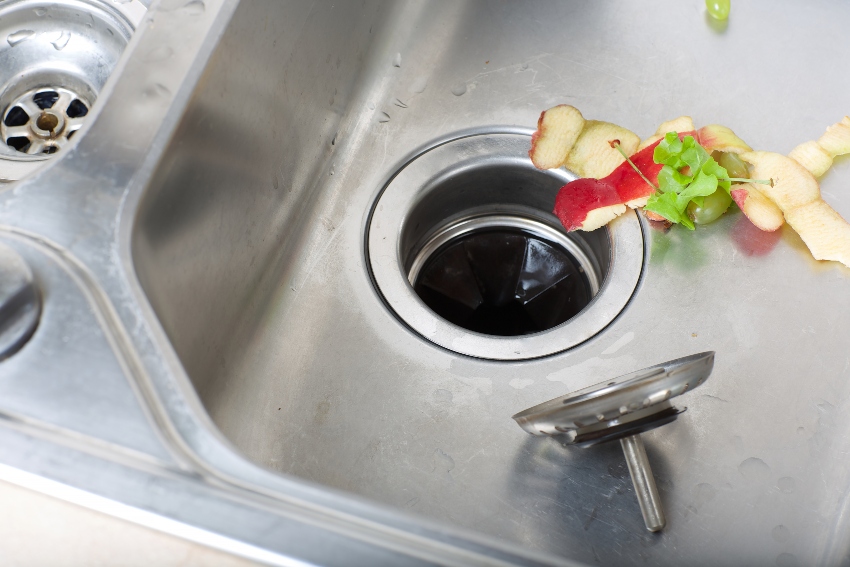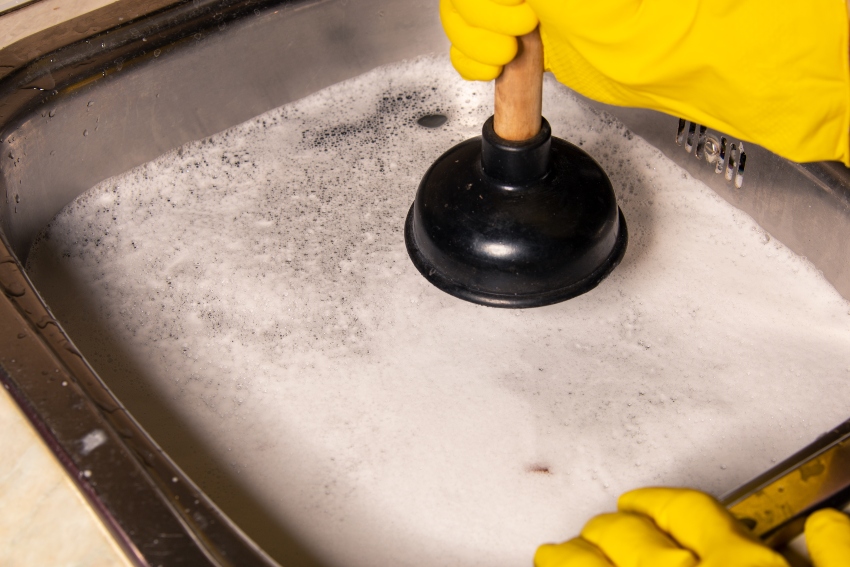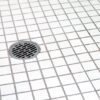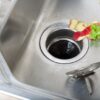Category: Plumbing Tips

Garbage Disposal Basics: Proper Use and Care
Garbage disposals make kitchen cleanup much easier and more efficient, but they’re not indestructible. These appliances are made to grind and drain small scraps of food left on dirty dishes, not large pieces and entire meals. Ensure long-lasting reliability and performance with this guide to garbage disposal basics.
Proper Garbage Disposal Use
What Can Go into the Disposal
The first step in proper garbage disposal use is understanding what should or shouldn’t be put in them. While small scraps and most food items can be put down the disposal, you should consult manufacturer instructions for the capabilities of your specific model. As a general rule of thumb, don’t grind anything that’s not biodegradable food.
Proper Operation and Care
On top of only grinding items intended for your disposal, following simple operation and maintenance guidelines will help get the most out of your appliance:
- Avoid overloading the disposal with too many or too large of items – throw large items in the trash or break them into smaller pieces first to lighten the workload and maximize the appliance’s lifespan.
- Run cold water while grinding food and continue doing so for 10 to 15 seconds after turning disposal off.
- Run the garbage disposal every few days with cold water to help prevent rusting and potential buildup of waste.
- If you notice a smell/odor coming from the disposal, grinding ice cubes and then running hot water will usually resolve the issue. Doing so will also help keep the blades sharp and clean.
- Periodically grind lemon or orange slices for extra, natural freshening of the disposal.
As with any drain in your home, never use harsh chemical cleaners or bleach that can damage your disposal and pipes. If you notice persistent smells or clogs, contact your local drain cleaning professional to properly diagnose and resolve the issue.
Selecting the Right Garbage Disposal
Like any appliance, not all disposals are created equal. Choosing an inexpensive model will save money in the short term, but you can expect louder operation, less efficient and effective grinding (and thus more potential for clogs and other plumbing issues), and a significantly shorter lifespan. Investing in a garbage disposal with more horsepower and performance features will last about 10 years as it grinds food much more easily.
At Robillard, our preferred brand of disposals is inSinkErator. Engineered with two-stage MultiGrind Technology, the InSinkErator Quiet Series processes more difficult food waste with ease, grinding scarps into the smallest of particles to be easily washed down the drain. Contact your local plumber for help selecting and properly installing your ideal model.
Once you get used to having a garbage disposal, it’s hard to imagine cleaning up after a meal without one. While these appliances typically last about 10 years, improper use can cause damage, requiring repair or even early replacement. Use these garbage disposal basics to maximize the performance and useful life of your unit.
Robillard Plumbing has proudly provided expert drain cleaning and plumbing services with professionalism and reliability since 1986. From new appliances and fixtures to emergency service, our knowledgeable team is here for all your plumbing needs. Contact us today to learn more.
Read More
Winter Plumbing Maintenance Reminders
Winter is extra tough on our home’s plumbing system, and we’re currently in the middle of the season’s coldest months. Follow these winter plumbing maintenance reminders to help avoid major issues and costly repairs.
Protect Your Pipes from Freezing
Frozen pipes are probably the most common winter plumbing problem, especially here in Minnesota. When the temps drop way down and harsh winds blow, the plumbing in exterior walls is at an even higher risk. Follow these guidelines to help prevent frozen pipes:
- Keep the furnace running. If you want to lower the thermostat at night or when you’re away, it’s recommended to go no lower than 55 degrees (closer to 60 if extreme cold and high winds are expected).
- Open kitchen and bathroom cabinet and closet doors. This allows warm air to reach and circulate around the plumbing.
- Leave faucets dripping/trickling overnight. On extremely cold nights, allowing the water to run, even minimally, helps prevent them from freezing.
Be sure you know where your home’s main water valve is located for quick, easy access should a pipe freeze or burst. In that case, close the valve and call your local plumber.
Keep Your Drain Lines Clear
Food particles, soap scum, hair, and other debris naturally collect in pipes over time and cause clogs. They’re more susceptible in winter, however, as the cold, harsh weather can stiffen and solidify these blockages more rapidly. Professional drain cleaning service is recommended every two years, and you can help keep your drains clear with these tips:
- Use strainers to catch common blockages. Debris can’t collect and clog your drain if it doesn’t get in to begin with! Cover sink and tub drains (especially in the bathroom and kitchen where they’re used most often) with strainers to collect large particles and then toss them in the trash.
- Never dump fats, oils, or grease down the drain. These are common clog culprits because they cool as they move through the pipes, coating the interior walls, solidifying, and building over time. These items should be disposed of in the trash – if they’re hot from cooking, collect them in an empty jar or coffee can to cool first.
- Don’t dump coffee grounds down the drain or garbage disposal. Since coffee grounds don’t break down in water, they don’t grind up and wash away like other food particles. Instead, they clump together and form a clog over time. Throw old coffee grounds in the trash rather than down the drain.
- Pour hot or boiling water down drains, especially in the kitchen. Not only will this heat up the cold pipes and help loosen any gunk buildup, hot water also makes the natural oils of food products move faster and more easily through the drain. However, use cold water while running the disposal to prevent those oils from liquefying and adhering to the blades.
- Use baking soda and vinegar for a homemade drain cleaner. Store-bought drain cleaners may help clear clogs, but they can also eat away at the pipes themselves. Instead, pour 1/2 cup of baking soda down the drain, followed by 1/2 cup of vinegar, and then let it sit for at least 30 minutes before rinsing with a pot of boiling water. Vinegar’s acetic content makes it an organic solvent that will naturally break down buildups in the pipes, and the baking soda absorbs odors to help keep the sink smelling fresh.
Remember that garbage disposals are designed for grinding and draining scraps of food, so large pieces should be scraped into the trash. Try to get dishes as clean as possible before washing to limit the amount of debris getting into your drain. If you experience clogs, backups, or other drainage issues, contact your local drain cleaning pros at Robillard.
We’ve made it through the holidays and into 2021, but there are still plenty of cold days ahead of us here in Minnesota. Use these winter plumbing maintenance reminders to help prevent inconvenient issues and expensive repairs or replacements.
For all your plumbing service and product needs, trust the experienced master plumbers at Robillard. Contact us today to learn more.
Read More


